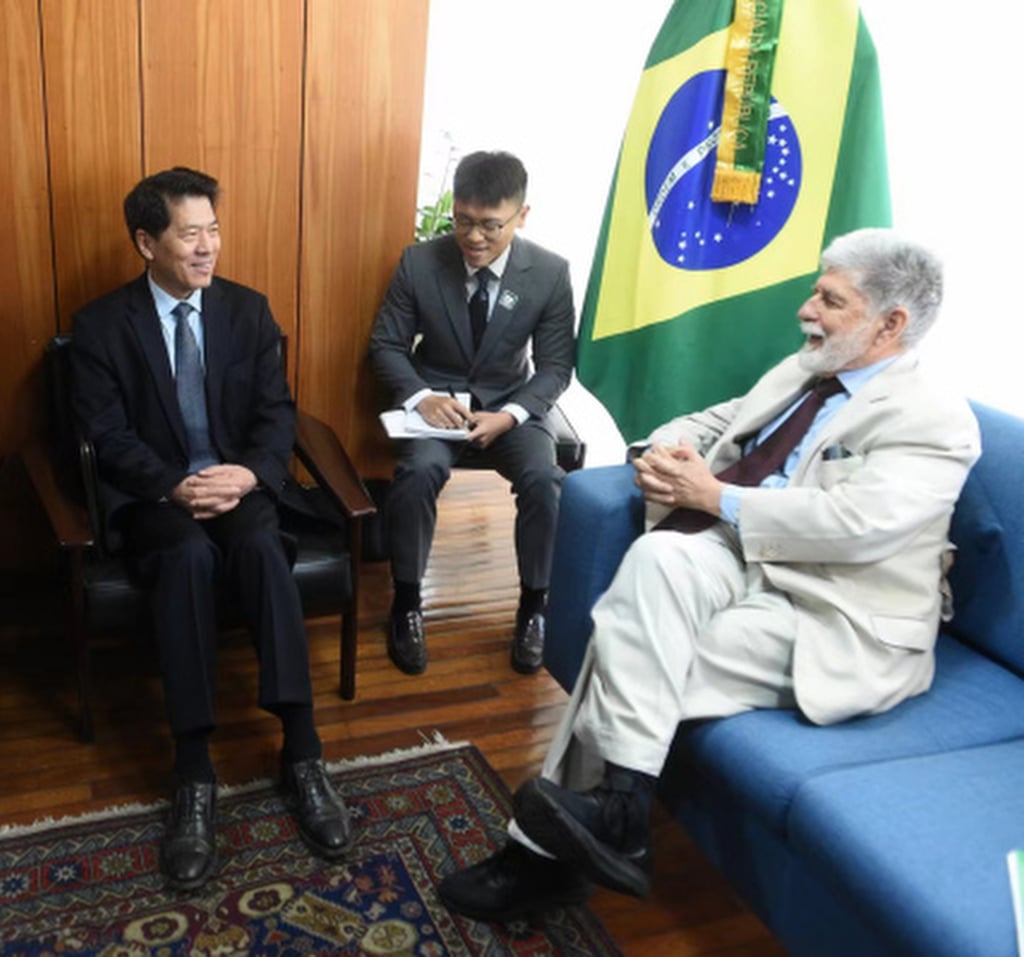China’s Ukraine point man Li Hui drums up support for peace plan in Global South
China has sought to position itself as a neutral party and a peacemaker in the conflict in Ukraine that is well into its third year, after Russia invaded in February 2022.
The consensus was presented by Chinese Foreign Minister Wang Yi and Celso Amorim, special adviser to the Brazilian president.
In South Africa on Friday, Li said the joint consensus had received “positive responses” from more than 110 countries.
“China is ready to strengthen communication and coordination with South Africa and promote the formation of ‘the broadest common ground’ that pools the international consensus based on the six common understandings,” the Chinese foreign ministry quoted Li as saying.

In response, South Africa said it supported China’s peace efforts and the six-point consensus with Brazil, adding that it looked forward to “jointly promoting” the proposal with them under multilateral frameworks.
Li’s trip to South Africa overlapped with that of Liu Jianchao, head of international liaison for China’s ruling Chinese Communist Party, who arrived for a four-day visit last Wednesday.
Liu met President Cyril Ramaphosa the next day, with the two agreeing to consolidate ties between their countries and step up party-to-party communications.
Like China, South Africa has not condemned Russia over its invasion of Ukraine and has maintained communications with Moscow throughout the war.
South Africa has also made its own efforts to end the conflict, leading an African peace delegation to Kyiv last year.
It was among a dozen Global South nations, including Brazil, that did not sign a final communique from a Ukraine-backed peace summit in Switzerland in June.
China skipped the gathering, insisting on the “equal participation” of Russia and Ukraine. Russia was not invited to the summit.
Ukrainian President Volodymyr Zelensky took a rare swipe at China following the summit. He accused Beijing of helping Moscow to undermine the gathering, which had sought to gain more international support for a solution based on a 10-point peace formula proposed by Zelensky.
Ukraine’s peace plan requests a full withdrawal of Russian troops from its occupied territories, including Crimea and parts of four eastern Ukrainian provinces.
However, there have been some signs that Ukraine and Russia are willing to talk.
Late last month, on his first visit to China since the start of the war, Ukrainian Foreign Minister Dmytro Kuleba told his Chinese counterpart Wang Yi that Kyiv was ready to negotiate if Moscow acted in “good faith”.
Russia has said it is open to talks but Ukraine must first drop its Nato bid and withdraw from its four easternmost provinces.
The signals came amid growing concern about the former US president Donald Trump returning to the White House, and what that might mean for US commitments to Ukraine. Trump has said that he would end the war in a day if he regained office.
The United States and Russia also completed a historic prisoner swap last week involving complex and secret diplomacy, prompting questions over what it could mean for Ukraine.
China has remained Russia’s biggest trade partner throughout the war, even as other countries have imposed sanctions against Moscow.
Also, while China seeks to position itself as a mediator in the conflict, Zelensky has said that he does not want Beijing to assume that role. He would prefer instead that it “force Russia to end this war”, according to an interview with Agence France-Presse last week.
China and Russia are strategic partners. We cannot force Russia to do what we want.
During his stop in Brazil, Li said every country’s territorial integrity should be respected but demands for China to pressure Russia to end the war were “unrealistic”.
“China is not a participant in the conflict. Russia is an independent and sovereign country, a full member of the UN Security Council,” Li said, according to translations of an interview he gave to Brazilian newspaper Folha de S. Paulo.
“China and Russia are strategic partners. We cannot force Russia to do what we want.”
There was “no simple solution” to the Ukraine conflict, he added. However, he said China and Brazil wanted to push the six-point consensus to be adopted by the United Nations at this year’s General Assembly, to serve as an official proposal to bring the two sides to the negotiation table.
In a meeting with Li on Monday, Brazilian officials led by Amorim said the country would continue to push for the joint consensus with China and create conditions for resolution of the conflict, according to the Chinese foreign ministry.